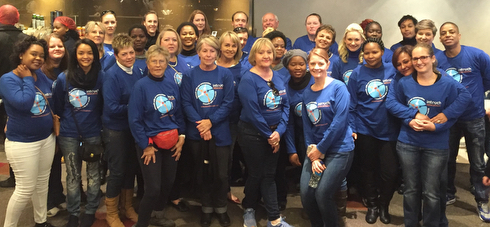The European Union fracturing post Brexit, the election of a divisive US president, populism and anti-immigration sentiment on the rise, poverty, droughts, floods and conflicts are all factors which put African unity, peace and prosperity under increasing threat.
Migration within Africa is and has always been a very significant phenomenon. People move from country to country on the continent in search of a better life or to escape poverty and conflict. Destination countries in Africa include South Africa, Cote de Ivoire, Kenya and Tanzania. Immigrants, especially in South Africa which is suffering from very high levels of unemployment, are often seen as taking away local jobs and competing for scarce resources. Violence, xenophobia, tightening visa requirements, threats to close refugee camps have been worryingly on the increase, dividing communities and threatening the African spirit of Ubuntu. Xenophobia has again been highlighted in the news recently in South Africa, as Pretoria residents gathered to protest the involvement of foreign nationals in criminal activities in communities.
High unemployment has motivated the government to take a stricter stance on protecting local employment opportunities by requiring that a thorough search is conducted within South Africa before skills are sought from abroad and, where critical skills are needed, a greater effort is made to transfer these skills to South African employees.
The International Organisation of Migration argues that allowing people to integrate into society, to contribute to economic development, to work and study is best practice and would help foster regional integration. This approach is beginning to gain traction in East Africa where business travel is encouraged by issuing a regional visa for Kenya, Tanzania and Uganda. In contrast, South Africa and Nigeria’s visa regimes tend to hamper business travel and sometimes have the continents two economic giants at loggerheads.
Considerations and recommendations for companies relocating families into Africa’s emerging markets:
- Gather as much knowledge as possible about the location - visa regimes, security, political and economic risks, cultural nuances. Ensure that you receive compliant advice from trustworthy service providers.
- Equip employees with the tools to thrive, including cultural competences to avoid alienating locals.


